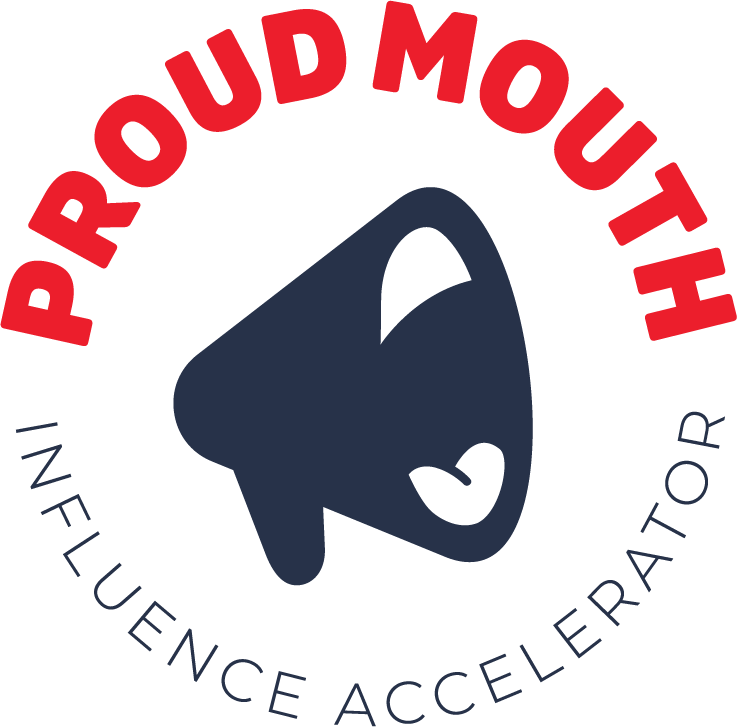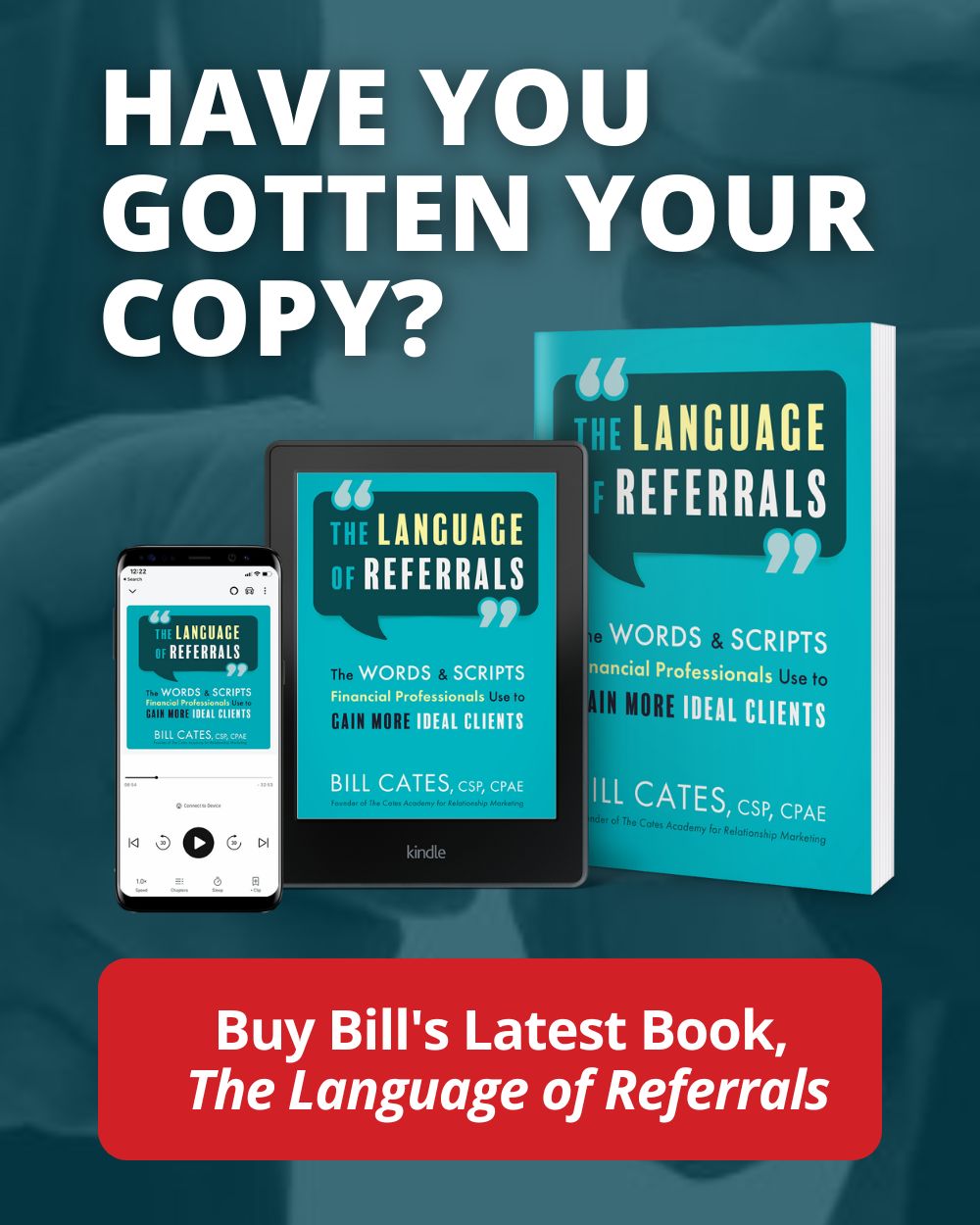Check Out Bill Cates’ NEW Top Advisor Podcast™
Interviews with Top Advisors for Top Advisors!
Top Advisor Podcast™
Ep. #90 – Growing Your Financial Practice and Trends Reshaping the Advisor World with Ric Edelman, CBDA
I sat down with one of the most recognized and influential names in the financial services industry: Ric Edelman.
From starting as a new advisor to building the largest RIA in the country, (with over $300 Billion in assets managed) Ric’s journey is filled with insights, strategies, and bold thinking that every advisor can learn from.
In this Top Advisor Podcast interview we dive into what it took to grow a billion-dollar firm, what’s coming with the great generational wealth transfer (his answer might surprise you), and how advisors can remain radically relevant in a rapidly evolving profession.
Whether you’re early in your career or an industry veteran, Ric’s perspective will challenge and inspire you to think bigger, act bolder, and adapt smarter.
In this episode, Ric shares his journey from angry consumer to industry leader.
Ric reveals how financial education and inclusion became the foundation for his firm’s growth, his contrarian views on the wealth transfer, and what advisors should do now to remain relevant and meaningful in their clients’ lives.
Want More Top Advisor Podcast Episodes? CLICK HERE!
–
Ric and Bill Discuss:
- How a bad experience with an advisor led him and his wife Jean to build a firm focused on consumer education and accessibility
- How and why serving the mass affluent can lead to long-term growth and impact
- His belief that The Great Wealth Transfer may be overstated due to longevity, healthcare costs, and concentrated wealth
- How financial advisors can stay relevant by helping clients with lifelong learning, career transitions, and life planning
- Key challenges that younger advisors (and seasoned pros) will need to navigate over the next two decades
- Ric’s take on relevance — and why staying relevant is non-negotiable in today’s advisory landscape
- A brief look at Ric’s philanthropic passion project: The Edelman Fossil Park & Museum
- Why understanding blockchain, crypto, and exponential technologies is essential for advisors aiming to provide complete service
- … And more!
Sponsors:
- SHOW SPONSOR: ProudMouth
Connect With Ric Edelman:
- DACFP Conference
- LinkedIn: Ric Edelman
- Instagram: @ric_edelman
- Website: DACFP
- Website: Edelman Financial Engines
- Edelman Fossil Park & Museum
- YouTube: Ric Edelman
- Email: ric@dacfp.com
Resources:
- RapidFire Referrals
- Get a copy of “The Language of Referrals”
- Get a copy of “Radical Relevance”
- Get here our new guide: The 3 R’s of Relationship Marketing
- Uncomparable: The Financial Advisor’s Guide to Standing Out through Niche Marketing by Kristen Luke
Connect With Bill Cates:
-
Show Transcript
Bill Cates:
Welcome to the Top Advisor podcast brought to you by ProudMouth PodRocket Academy. I’m your host, Bill Cates, creator of the Cates Academy for relationship marketing. In each episode,Welcome. Welcome. Today, I have the distinct honor of speaking with Rick Edelman, a true titan in the financial advisory world. What’s that? You’ve never heard of Rick Edelman? Well, maybe it’s time to crawl out from under the rock you’ve been under. Right? Today’s conversation will explore Rick’s incredible journey to building the nation’s largest RIA, his insights on the wealth transfer. And you’re gonna find his insights on this wealth transfer a little bit, maybe unexpected, and his vision for the future of financial advice, which I found actually very inspiring. But before we get going, I wanna let you know about some free resources that I invite you to retrieve after you’ve listened to today’s interview. You’ll find checklists, guides, videos, other tools.
Simply go to referralcoach.com/resources. I write this down unless you’re driving. Referralcoach.com/resources. It’s also in the show notes. While you’re there, make sure you sign up for our free weekly tips. We’re always sharing best practices. We’ll notify of you our new newest podcast interviews as they go live. And while these are free to you, I think you’ll find them quite valuable.
The Top Advisor Podcast is sponsored by the folks at Proudmouth who help advisers increase client engagement and attract more ideal clients. To learn more, go to proudmouth.com/kates. That’s proudmouth.com/cates. And now on with today’s show. As the founder of Edelman Financial Engines, the nation’s largest RIA, as I mentioned, Rick Edelman has been a trailblazer in financial service industry. His firm manages over 300,000,000,000 in client assets. That’s billion with a b. Rick’s influence extends beyond his firm.
He’s been ranked as the nation’s number one independent financial advisor by Barron’s three times, and is the number one New York Times best selling author of 13 personal finance books, and I just learned he’s got a fourteenth on the way, including, I just finished reading, I’ll hold it up here, The Truth About Your Future, The Money Guide You Need Now, Later, and Much Later. Very good book. Thick book, but quite good. I I I actually learned quite a bit. Rick’s dedication to financial education is evident through his nationally syndicated radio show and PBS television specials, where he empowers individuals to take control of their financial futures. Rick has also been recognized as one of the most influential people in the financial services industry by Investment News and RIA Biz, and his accolades include the IARFC’s Lifetime Achievement Award and induction into Research Magazine’s Financial Advisor Hall of Fame. Beyond his professional achievements, Rick and his wife, Jean, are noted philanthropists contributing to various educational and health care initiatives. Rick Edelman, zooming in from Great Falls, Virginia.
Welcome to Top Advisor Podcast.
Ric:
It’s my pleasure, Bill. Thanks so much for having me. I’ve been looking forward to this for a long time.Bill: You are an icon in the industry, to say the least. I want to start out with a quick question about your philanthropic activities. I know that you and your wife, Jean, have done a lot, but you’ve got the Edelman Fossil Park and Museum. Now not everybody can say they have a fossil park named after them. Tell us just a little bit about that because I know you’re excited about that.
Rick [00:03:51]:
Yeah. This is a twelve year project, although if you talk to the park’s director, he’ll say it was a 66,000,000 year project. It’s in, in Mantua Township, South Jersey, about twenty minutes outside of Philly, just a ten minute detour from the New Jersey Turnpike I-ninety 5. So it’s easy to get to, and it’s super exciting. It’s a very important scientifically, site to, the study of paleontology, but it’s also hugely important for us ordinary consumers because not only is New Jersey a lot of folks don’t know this, Bill. New Jersey is a hotbed of dinosaurs. The very first dinosaur ever discovered was in Haddonfield, New Jersey about seven miles from the site back in 1858. Mhmm.And this site, has been in operation for a hundred years, where they have been digging a quarry. They have found a hundred thousand fossils so far, a hundred species, including the largest crocodile ever discovered, 27 feet long. It’s on display in our museum. The problem that we had is that it was a research facility. The public wasn’t allowed in. So Rowan University, where Jean and I are very heavily engaged, she’s on the board for example, we both met and went to college there. Rowan bought the site back in 02/2008. And the founding director of the site, Ken Lacovera, he’s like the Carl Sagan of paleontology, he came up with the idea of building a visitor center so that ordinary folks can go into the dig site.
So we expanded on that idea. Jean and I agreed to fund it, and we’re really excited about it. It was named by Smithsonian as one of the five most anticipated museum openings of the year. It’s gotten a hundred million impressions globally because it’s so exciting. And here’s the cool thing. Not only is the museum super cool and exciting, but so is the dig site. You get to go into the dig site. You get to dig for fossils.
If you spend a half hour in the dig site, it’s virtually guaranteed you’re going to find fossils. There are millions of them there. Wow. And whatever you find, you get to take home. There’s nothing like it anywhere.
Bill [00:05:58]:
That is that is very cool. I love it. And and it’s a huge give to to your alma mater, obviously. We’re very excited for you. I wanna make sure we covered that real quick.Ric [00:06:09]:
I appreciate that. Just go to efm.org, Edelman fossil museum Org, and, learn all about it. It’s two hours from New York, half hour from Philly, Two Hours from DC. It is a ton of fun for all ages.Bill [00:06:21]:
Sounds good for my grandkids, I think, actually. So as I mentioned at the top of the show, there’s three main areas I’d like to explore today. First, I wanna talk a little bit about your story from financial advisor new in the business to your ascension among the legends in the industry, as I like to say. Then then I’d like to get your perspective a little bit on this this great transfer of wealth that everyone’s discussing right now, and then a little bit about where you see the future of financial advice, how advisors stay relevant moving into the future. So if you don’t mind, reflect a little on how you got started. You were a newbie at one point, and what were some of the challenges or exciting things that you discovered when you first got started?Ric [00:07:02]:
Yeah. Our background’s a little unusual. Jean and I kinda fell into this business. It wasn’t our intent. Mhmm. My degree was in communications. Jean’s was in consumer economics and nutrition. We were young newlyweds and like every other newlywed, wanted to buy a house.So we decided to go to a financial adviser. This is the early nineteen eighties when there’s really the notion of a financial advisor was a relatively new phenomenon. Yeah. There were a bunch of stock brokers and insurance agents. That was about it. Mhmm. And this advisor, demonstrating how new this industry is was a terrible one. He ended up he was a crook.
He told us to, commit a felony. Told us to lie on our mortgage application in order to qualify for the loan. What he should have told us is that we weren’t ready to buy a house, but instead, he said commit a felony. That infuriated us. And so we said to ourselves, you know what? Why don’t we teach ourselves how this works and then teach others what we’ve learned? And so I quit my job as a journalist. I was writing in the financial trade press. Jean quit her job, went to work for Paine Webber to learn the back office. And I handled the front office, got myself licensed in a couple of weeks, and we started our own little financial planning practice.
And we began with financial education, teaching young parents how to save for college for their children. We did PTA seminars at all the PTA groups in the elementary schools throughout the Washington DC area. And word spread. I got invited onto the radio, that led to recurring gigs, and they invited me to ultimately host my own show, which as you know, I did for thirty two years, the longest running personal finance show in America. Had a million listeners a week, was named to Talkers Magazine as the number one personal finance talk show host in the country and and one of the top 100 most important important talk show hosts in the nation. That led to writing books and doing television. I hosted three different TV series and and six, specials for, PBS. And, you know, that led to my being on Oprah five times and, on and on and on.
And so our background was simply, you know, a guy made us mad, and that’s what got us to get into this business. And we started educating consumers and offering to serve them as their adviser, and people liked what we were saying and how we were serving. And, so our firm grew into the point, it became the largest financial planning investment advisory firm in the nation. Today, I think it’s managing in the neighborhood of $300,000,000,000 for 1,400,000 households.
Bill [00:09:36]:
Alright. So you went very quickly from what you did to get started and starting with education, which is still a great way to serve customers today. I think you’d agree. To largest RIA in the country. Somewhere along the line, you made a decision to scale, to expand. Talk about that. What did that look like? And what were maybe some of the growing pains of doing that?Ric [00:10:07]:
The attitude Jean and I had from the beginning was to serve those who were unserved. I mean, Wall Street’s infamous for for helping rich people get richer. And that’s fine. That’s great. Go ahead. Help help a client figure out if their kid should go to Yale or Harvard. Wonderful. Good for you.But we figured that’s not really what matters. What matters is helping a family figure out how to get their kid into college at all. And helping folks who don’t have access to the legions of lawyers, accountants, attorneys, financial advisors, etcetera. Let’s see if we can provide resources and accessibility to that audience. What we now refer to in our industry as the mass affluent. Wall Street tends to work with a high net worth, ultra high net worth, family office. We worked and still do, our firm is still focused on the mass affluent, who nobody else is willing to serve. People who don’t have a whole lot of money aren’t wealthy but wanna wanna be.
And so that’s who we targeted, and that’s who the firm targeted today. And that meant first and foremost, education, low or no account minimum. We had a massive pro bono activity, still do today, that if you don’t have any money to invest, we’ll take you on as a client anyway, and we’ll help you with getting out of debt and building cash reserves, and dealing with other financial issues you’re facing in life, which have nothing to do with investing, to help you, achieve your financial goals and one day become that affluent investor that everybody else covets. And so that was always our focus. And that’s why we began with education because we all know that America is filled with financially illiterate adults.
Ric [00:11:43]: And our K through 12 school system does not educate about money. Employers don’t talk about money. Mom and Dad doesn’t talk to their children about money. So kids grow up financially illiterate and we’re faced with huge financial decisions on a daily basis from buying versus leasing cars to buying insurance, credit and debt, wills and trusts. I mean, you know the full laundry list of personal finance topics. We are ill equipped to make good decisions because we have no experience doing it and no education as a backdrop. So that’s been the focus for Gene and Me forever, which is why we’ve done our radio and television shows, thousands, tens of thousands of seminars over the decades, and why I’ve written 13 books on personal finance.
I’m now writing my fourteenth. Now that’ll come out next summer. And so, it’s our effort to try to help improve financial literacy because we know if we improve literacy, we’ll improve incomes, and if we improve incomes, we’ll improve wealth. And that’ll make a lot of society’s problems go away.
Bill [00:12:40]:
Yeah. My my one of my missions in life is I believe that every every human deserves to make educated financial decisions that are in their best interest. And one of the ways IRic [00:12:50]:
That’s that’s why you’re doing this podcast. And and I’m that’s why I’ve been so impressed with the work you’ve done over the years. And, unfortunately, there aren’t enough of us in this industry that have been doing that.Bill [00:13:00]:
Well, and and I’m just thinking about the listener, who is thinking, okay, that’s all well and good, but how do I make a living serving the mass affluent? It’s a it’s a it’s only a different kind of business model.Ric [00:13:14]:
It is, but that’s obnoxious and rude and arrogant. You know, how dare you? That’s like a physician saying, I’m not gonna help you get well because I can’t make any money helping you do that. How dare you? So and you’re right. It’s a very common attitude. But I’ll go, hey. Here’s what. Here guess what? You’d be amazed at how wealthy you can become by helping others become wealthy who aren’t already wealthy. I mean, look at the biggest retailers.Who makes more money? Saks Fifth Avenue or Walmart?
There you go.
Ric [00:13:42]:
So, I’ll I’ll give you one set of data. It’s out of date. It’s old. The data I’m about to give you is about twenty years old, but it makes the point and I think it’s still philosophically valid. One of my advisors came to me twenty years ago, maybe fifteen, and told me he had done an analysis of his book of clients. And he had identified that of his top 20 clients, 13 of them began as pro bono cases. So if you are willing to help people where they’re at today, they’ll appreciate it and they’ll remember you. And in the future, when they get more income from a higher paying job, when they marry up, when they get an inheritance, when they win the lottery, they’re gonna think of you.So you can be obnoxious and greedy and arrogant and only work with someone who already has $10,000,000 or you can go work with someone who would aspire to that and whose life you can truly change in an impactful way. And oh, by the way, you maybe might collect some AUM in the future. And even if you don’t, you’ll have the satisfaction of knowing that you’ve made a material difference in this person’s life and that, by the way, is compensation that’s priceless.
Bill [00:14:53]:
Well, amen, brother. Ric, in just a minute, I’m gonna ask you to share your perspective. This is gonna relate a little bit to what we’re talking about, and that is this this transfer of wealth to the next generation, first, the spouse, a lot of it, and then to the eventually, to the heirs. But first, a quick word from our show sponsor.I have coached and interviewed many advisers who report significant success with their podcast. A podcast can create deeper engagement with your clients and attract more right fit clients to your practice. I’ve been working with the folks at ProudMouth since the inception of the show. Not only do they take care of the nuts and bolts of producing and hosting the episodes, but they’ve shown me how to increase my influence and attract more business. Proudmouth has a tool they call the Managed Influence Accelerator that creates a powerful content ecosystem that amplifies your voice, builds your influence, and drives real growth. And their sonic boom coaching program with podcast pro, Matt Halloran, will guide you through the entire process. They’ll make sure you have the right strategies in place and then employ the exact right tactics for you. Podcasting isn’t for everyone.
And with that said, I think you owe yourself a look at how having a podcast can help you play bigger and build a better business. To book your free strategy session, go to proudmouth.com/cates. That’s proudmouth.com/cates.
Alright. Very nice. I love your response. Perfect. Ric, as we all know, the the concepts of generational wealth and wealth transfer, they’ve been around for hundreds, if not thousands of years. And really, they apply to all levels, whether someone has a lot of money or I mean, I got a little money from my dad. But, you know, with that said, we know that the greatest transfer in history is happening now. I’m just curious how you think this dynamic is gonna impact financial advisers over the next twenty ten, twenty, thirty years or so.
What are the opportunities, and what are the challenges perhaps?
Rick Edelman [00:17:08]:
I think that the wealth transfer conversation you’re right, Bill. Everyone’s talking about it everywhere, and the numbers I’ve heard range from 20,000,000,000,000 to $40,000,000,000,000 that are gonna pass from the greatest generation and the boomer generation down to the millennials, gen x, and so on. And it’s enticing and tempting to hear those incredible numbers passing down and that all these young folks are gonna need advisers because nobody wants their parents’ adviser. And it’s either an opportunity for you to keep your kids’ client the kids of your clients’ clients or to go steal the kids of your of somebody else’s clients, as clients of your own. I think the whole conversation is nuts. I think it’s I think it’s way out of whack. I don’t believe it. I think it’s a waste of energy for lots of reasons.Number one, as you pointed out, we’re talking about the next ten, twenty, thirty years. I don’t think anybody in business today can build a model that is going to deliver results ten or twenty or thirty years from now. Most of the people in this business will be long retired, a lot of them even dead by then. So I don’t think that’s really something that is of tangible benefit or value to say that this wave is coming in a decade or two. Second, I think it’s the numbers are way overinflated for two primary reasons. First, when we talk about who is the biggest heir, the biggest heir is not your children. For most Americans, their biggest heir is the healthcare system. People are living longer than ever before.
Your mom and dad are not gonna be giving you money. They’re gonna be giving it to Medicaid. The money is going to be going to paying their healthcare expenses because mom and dad have one annoying habit. Yeah. The funny thing is that mom and dad refuse to die. They you know, old people keep getting older. You know, that’s totally different from the way it was before in human history. Nobody ever lived as long as people are living today.
Ninety percent of all the people in world history who ever made it to age 90 are alive right now. And back in 1900, life expectancy was 47. So people never lived as long as they’re living today, which means as you noted, Bill, you got a little bit of money from your dad. Odds are in today’s generational shift, dad would still be alive. My father was in his seventies when his mom, my grandmother died at a hundred and one. By the time my father got his inheritance, he didn’t need the money anymore because he was already in his seventies. That’s the dilemma. Is that by the time people get their inheritance, they’re probably gonna be whatever their financial situation is, they’re gonna be set with that.
And the need for an inheritance isn’t gonna be as significant as if they got their inheritance in their twenties or thirties which is how it used to be a hundred years ago or a thousand years ago. Here’s another element to this and why I think it’s not as big a deal. We know that wealth is concentrated in this country in a very significant way. The very rich at the very top of the pyramid have the vast majority of the money which means most Americans are not gonna have sufficient money to pass anything to their children at all in the first place. Any meager money they do happen to have, they’re gonna spend on their own healthcare. Whatever they maybe happen to have left will be a very small amount of money. Think about this. If you have a million dollars and you die and you have three children, that million dollars, odds are two thirds of it is inside a retirement account because two thirds of all the wealth in America are in IRAs and four zero one k’s and the like, which means that million dollars is gonna be wiped out 40% of it, the taxes.
Now there’s 600,000 net of taxes left. And if you’re gonna give that 600,000 to each of your three children, they’re each gonna get $200. What are they gonna do with that money? Well, I’ll tell you. They’re gonna pay off their debts. They’re gonna send their children to college. They’re gonna buy a home. How much of that money is really gonna be left for each one of them to hire a financial advisor and open an investment account? So if you’re that advisor expecting you’re gonna find a whole lot of people getting a whole lot of inheritances for you to generate a big book of business, I think you’re kidding yourself.
Okay. So what what to do with that information, I guess? It means you shouldn’t you shouldn’t sit back and get cocky thinking all I gotta do is wait for this great wealth transfer, and I’ll be on easy street. That wealth transfer, even if it comes, it’ll be a tsunami that’ll knock you on your butt or it’ll be a trickle little stream and it won’t even reach your ankles. You’re not even gonna notice. What you need to do is ignore the great wealth transfer. Don’t wait for the elders to die. Instead, start building your practice today instead of waiting for what ultimately may never come.
Bill [00:21:46]:
I like that perspective. And, it’s gonna make ultimately, I mean, if you’re thinking about the value of your book, you don’t want a book of just people that are on distributions. You want a, a youthful book too. Do you not? I mean, you want a range of clients in your book.Ric [00:22:02]:
If you plan on being in the business for more than a decade, yeah, you definitely need to be adding because your clients you you will experience attrition. You are going to experience clients passing away or spending down their assets. The one study from one major firm, I won’t mention its name, was just released saying that last year, more than half of the advisors on their platform had books that shrank. And it’s because of attrition. It’s because of clients who are a combination dying or spending down their wealth and and supporting themselves. So we do need to recognize that the demographics are changing, but it isn’t the great wealth transfer that’s the key issue here. It’s the age wave that’s the the issue here.Bill [00:22:43]:
Yeah.Ric [00:22:43]:
It’s the fact that people are living longer than ever that while we have 10,000 people reaching retirement every day and 10,000 people dying every day, we also have many more than that who are persisting in life every day who are spending their own assets. And we have a smaller portion of Americans behind them. The largest population, with money are the boomers. When we look at the populations behind them, we’re producing fewer children, fewer babies in this country. Pyramid, which pyramid, which used to be very few old people at the top and whole lot of young people at the base. That pyramid is now becoming a box where we now have as many people at the older life ages as we do at the younger. This has huge implications for society, that we are only beginning to, grapple with. And this is where there’s a big business opportunity for you.Helping parents realize you don’t really need to be worrying about college planning because college will be free by the time today’s newborns get there. You really don’t have to be worried about retirement savings because you’re never going to retire. If you’re gonna be living to age 100, retiring at age 60 is nonsense. A forty year retirement? Nobody ever contemplated that economically. Decides you’ll be bored out of your mind. So it’s now all about lifelong learning and career planning. These are two huge new areas that advisors today can be providing services to their clients and subjects that no other advisor is talking about. It’s a way for you to differentiate.
It’s a way for you to remain vital to your client. It’s a way for you to deliver services to your client that nobody else is delivering. That’s how you’re going to get sticky clients. It’s how you’re gonna generate referrals. It’s how you’re gonna be providing true value add services by focusing on the demographic shift due to longevity, aging, and the changing dynamics in this country.
Bill [00:24:47]:
I love it. Lifelong learning, career planning. You’ve you’ve almost answered my my final question. This is but I’m gonna say that for a second because I do want you, to talk briefly about, an event you have coming up in June. It’s called, I’m gonna get it right. D a c f p. How do you pronounce that? DAC? DAC f p. DAC f p vision twenty twenty five premier event for on Blockchain and digital assets.Rick Edelman [00:25:16]:
And this fits right into the conversation we’ve just been describing. We need to recognize that life is changing across the board, not due simply to demographics, but also because of exponential technologies. In fact, the reason we’re living so long is because of our innovations in medicine and science. Bioinformatics, bionics, three d printing, big data, nanotech, and of course robotics and AI. All of these are contributing to innovations in health and medical care that are helping us cure diseases and living leading to longer and better outcomes and longer lifelines. At the same notion, one of the most innovative exponential technologies is crypto. Blockchain and digital assets jumped onto the scene fifteen years ago and today is the dominant investment conversation and for all the right reasons. It’s a $3,000,000,000,000 asset class and can no longer be ignored.Rick Edelman [00:26:14]:
We have a president and congress that are fully supportive of this asset class. And so it is hugely important that financial advisers who have been largely dismissive of this for the last decade recognize that it is one of the fastest growing and important new innovations in the field of commerce on a global scale. So I’ve been offering, this course, this say that again. I’ve been offering this event called Vision since 2016. It’s the longest running digital assets event exclusively for financial advisors and touches not just on the tech, what is going on with Bitcoin and Blockchain, etcetera, but what are the implications for your practice management? How do you integrate into client portfolios? What about compliance and risk management? How do you deal with, client questions? What are the issues regarding crypto taxation, crypto crypto estate planning, crypto financial planning, crypto philanthropy? There are a whole lot of ways that financial advisors can be helpful to their clients without ever recommending Bitcoin. It isn’t about you having to love Bitcoin. It’s about you understanding what this is as an asset class so that you can provide value add service to your clients. So we’re really excited about this year’s, conference.Senator Bernie Marino is gonna be keynoting. We also have Matt Greenwald from Amazon Web Services. People have no idea how deep into crypto Amazon is. So we’ve got a really fabulous agenda. It’s gonna be June ’11 in Dallas, and you can go to dacfp.com, d a c f p Com, to learn more about it and to register.
Bill [00:27:55]:
Yeah. And if you miss this year, you’re gonna have it again next year, and just gotta stay in touch with Ric and stay in touch with touch with DACFP. Stay on top of all of this. So thank you. Rick, I I wanna kinda finish off, talking about relevance. One of one of my books is called Radical Relevance. I my belief is just our business. If our messaging isn’t relevant, then we’ll be ignored and we have no business.Right? So I’m curious about, how you see advisors being relevant, relevant moving forward. So you’ve already mentioned focusing on lifelong learning as a distinguisher and a way to be relevant. You’ve talked about career planning, life planning. A lot of advisors are starting to get into that a little bit. Anything else that comes to mind in terms of how advisors can be can stay, and become more relevant moving forward?
Ric [00:28:44]:
Yeah. In addition to lifelong learning and career planning, I would also argue for crypto education as we’ve just discussed. Yep. And to recognize that we’ve all gotten really good at what we do. I you know, that certainly wasn’t the case when Jean and I started in the nineteen eighties. You know, there’s evidence of that financial advisor who told us to commit a felony. But today, we’ve all gotten really good at it. We now have decades of market experience, of world events, client education, and we know the kind of advice that works.We know how to run money really well. What we now need to recognize is that the world is undergoing yet another shift. It’s undergoing a demographic shift and a technological shift. And if we wanna remain relevant, we need to recognize that that’s where our clients need help. Because when you reach the so called retirement age at 60, 60 five, 70, you’re barely two thirds of your way done with your life. So when people walk away from that career of forty years, well, okay, what’s next? They’re gonna need help in answering that question, and there’s nobody better positioned than the financial advisor to answer it because you know your client intimately well, you know what they like and dislike, you know what their fears are and their aspirations are, you know what their attitude is about family and hobbies, and leisure and recreation. You know what they’re good at. You know what they have always wanted to spend time doing but never had the opportunity.
But now in your seventies, you have three attributes that you didn’t have in your twenties. You have money, you have experience, and you have time. We didn’t have any of those things in our twenties. But in your seventies, you do. So guess what? The number one age group for the formation of new companies, the biggest growth of entrepreneurship are people over the age of 60 because we have those three key attributes that would lead to success. So by helping your client recognize that walking away from that career isn’t a walking away from anything, it’s rather an opening to brand new opportunities. This is how you can get clients excited about the future, recognizing you can be their partner in that journey, and that’s how you’ll maintain their loyalty and, ergo, their assets for you to manage. So I think that you need to recognize that the entire, age wave is going to be radically different over the next thirty years compared to the past thirty years, and you can be the guide for your clients.
Bill [00:31:14]:
Very inspiring. And someone myself who just turned 74, I got a lot of years left, don’t I?Ric [00:31:21]:
You sure do. You’re just getting started, though.Bill [00:31:24]:
Well, I appreciate this. This is great. My featured guest on today’s show has been Rick Edelman, the founder of Edelman Financial Engines, author of numerous books, and the OG of financial services. Thanks a billion for your contribution to our industry and for being my guest on Top Advisor Podcast.Ric [00:31:42]:
It’s been my pleasure, Bill. Thank you so much.Bill [00:31:45]:
The Top Advisor Podcast is sponsored by the folks at Proudmouth who help advisers increase client engagement and attract more ideal clients and also make this podcast possible. To learn more, just go to proudmouth.com/kates. That’s proudmouth.com/cates. To you, the listener of this podcast, may I ask you a small favor? If you like this episode or like the podcast in general, please leave a five star review on the platform you’re listening to the show. Not all platforms have a place for reviews, but if yours does, I’d be grateful. And if you haven’t already, there are four places you’re gonna wanna visit. Referralcoach.com/resources for a bunch of guides, checklists, scripts, videos. That’s referralcoach.com/resources.The catesacademy.com, for the most comprehensive referral and introduction training on the planet. And if you want to learn a little more about the coaching I do with advisors, individuals, and groups, go to www.coachcates.com. This is Bill Cates reminding you that ideas do not make you more successful. Only acting on those ideas will bring you the success you desire. Thanks for stopping by.
Thank Thank you for listening to the Top Advisor podcast brought to you by Proud Mouth PodRocket Academy. I encourage you to visit my website, referralcoach.com, for links to my books, online courses, and to register for the Cate’s Academy.
About Our Guest
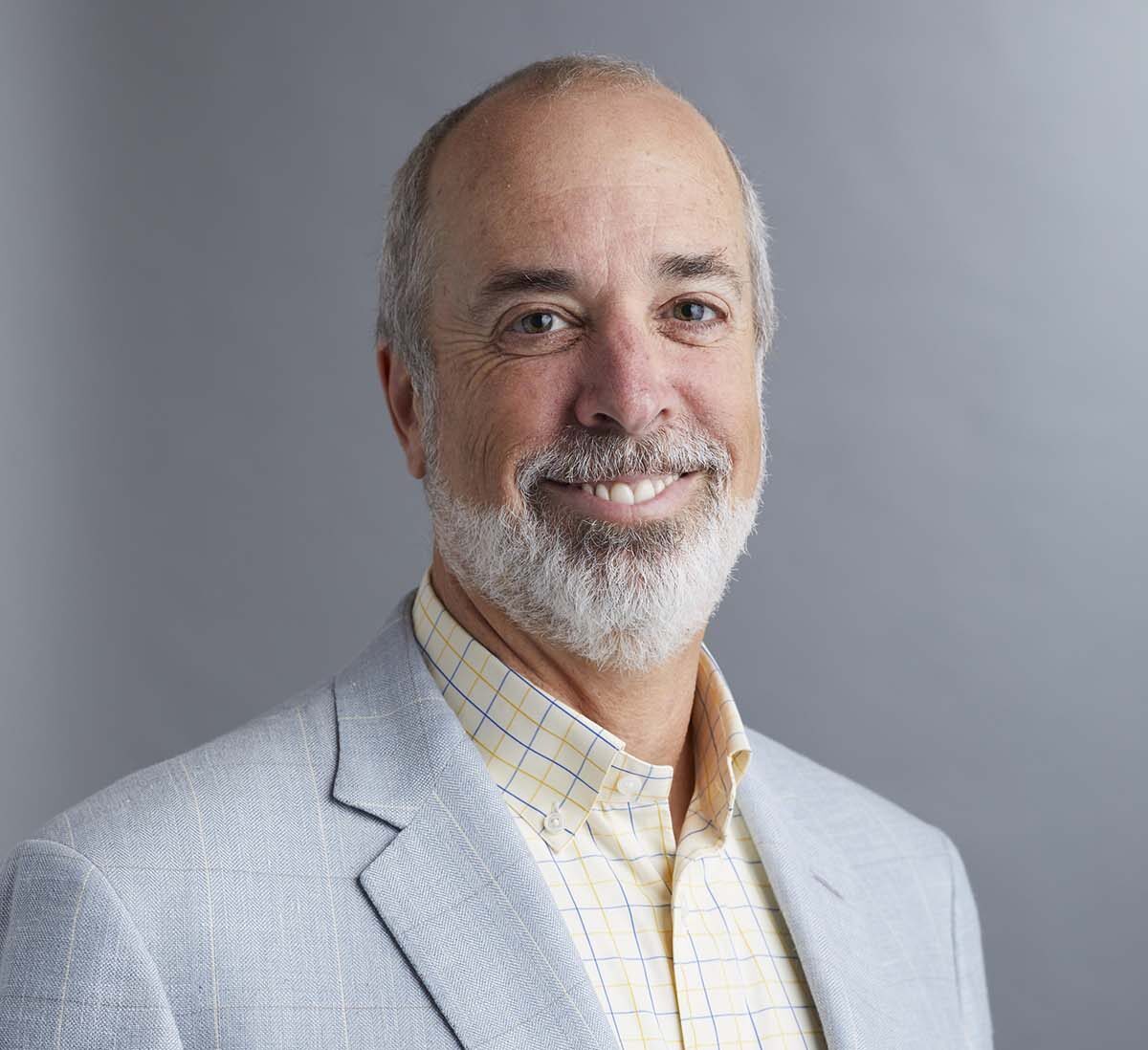
Ric Edelman created the CBDA designation, Certified in Blockchain and Digital Assets. He is a #1 New York Times bestselling author of 13 books on personal finance, with more than one million copies in print in ten languages, holds two patents for financial innovation and created one of the most successful ETFs in history. He was ranked three times as the nation’s #1 Independent Financial Advisor by Barron’s and founded the nation’s largest financial planning firm, now serving 1.3 million clients and managing $300 billion in AUM. Edelman is in both Research Magazine’s and Barron’s Financial Advisor Halls of Fame, and recipient of IARFC’s Lifetime Achievement Award. Investment Advisor, RIABiz and InvestmentNews all named him one of the most influential people in the investment management profession.
![]()
Never Miss an Episode!
Click below to subscribe on your favorite podcasting platform.
P.S. Don’t keep Top Advisor Podcast a secret … share with a friend or colleague!
Click Here to Subscribe Tell a Friend
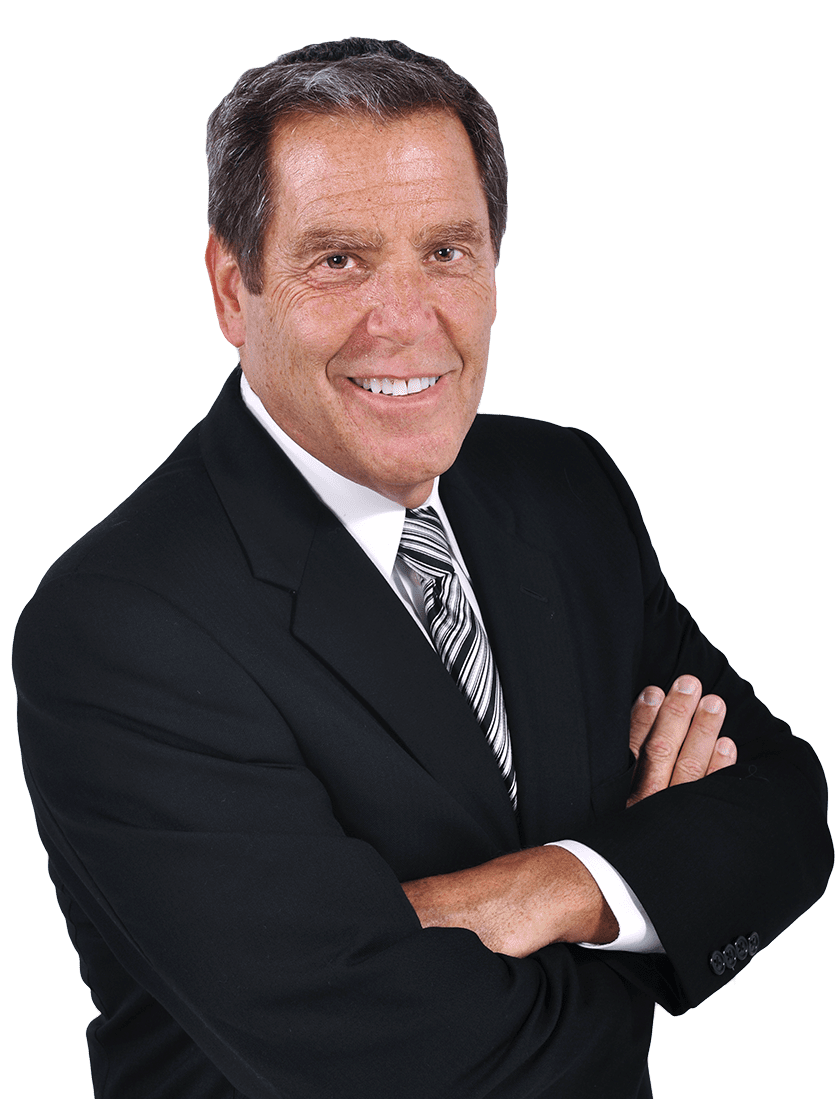
About Your Host
Bill Cates, CSP, CPAE, works with established financial advisors to speed up their growth without increasing their marketing budget. Advisors tap into Bill’s proven process to multiply their best clients through introductions from advocates and Centers of Influence (such as CPAs and attorneys), communicate their value proposition more effectively, and create a reputation in a profitable target market. Bill helps advisors move from push prospecting to magnetic marketing – to attract more Right Fit Clients™.
Bill is the author of four best-selling books, Get More Referrals Now, Don’t Keep Me a Secret, Beyond Referrals, and Radical Relevance. Bill is a highly sought-after international speaker and coach, as well as the founder of The Cates Academy for Relationship Marketing™.
Do you know someone Bill should interview (including yourself)?
Do you have a topic you’d like to see covered?
Contact Bill Cates directly: BillCates@ReferralCoach.com
